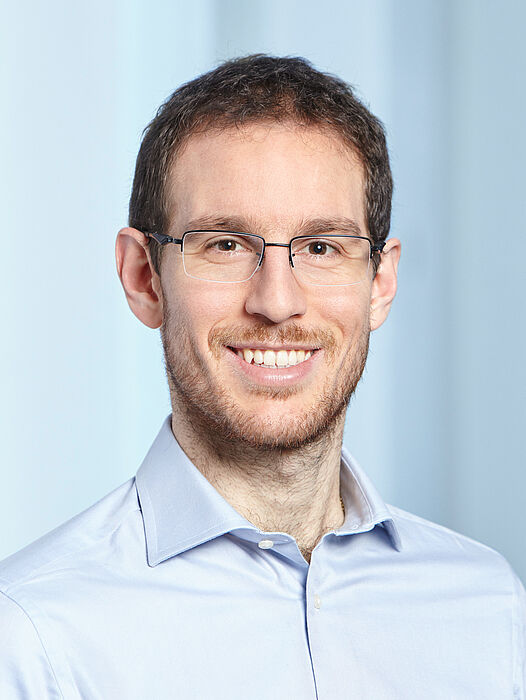On Friday, 26 April, Prof. Dr Alessio Figalli will give the keynote lecture at this year's Weierstrass Lecture at Paderborn University. The mathematician was awarded the Fields Medal in 2018. In this interview, he explains why he was honoured with the award, which has the same status as the Nobel Prize, and what his research has to do with clouds.
Professor Figalli, you were awarded the Fields Medal for your contributions to the theory of optimal transport and its application to partial differential equations, metric geometry and probability. Can you explain - in layman's terms - what this is all about?
Figalli: Optimal transportation is a very old topic, dating back to the 18th century and originally concerned with the transportation of material from one place to another. Over time it evolved and became very important in economics after the work of Kantorovich in the 1940s, and from the 1980s it became increasingly important in mathematics. Over time, we have come to understand that optimal transportation is a very rich theory with connections to many other areas of mathematics. This discovery was made by several mathematicians over time and led to a variety of applications, especially in partial differential equations, geometry and probability. I would say that over time many results have been obtained by different mathematicians and also many questions have remained unanswered. I have made my contribution to some of these important problems, and these were one of the motivations for awarding me the Fields Medal.
In the process, you have also solved a problem that has existed for over 20 years. One that concerns the so-called "Monge-Ampère equation". Today, it is used in areas such as urban planning, imaging and meteorology. These are all very concrete examples from everyday life. How important is it to you that your research has a practical relevance and is not exclusively of theoretical use?
Figalli: I like the fact that the problem comes from concrete applications and can be applied in concrete situations, which makes my work more interesting and exciting. On the other hand, we should also be aware that mathematicians are driven by the beauty of the problem and the mathematical challenge that the problem entails, and this is also the case for me. I deal with problems because I find them interesting, but also because I simply like them and see the fun and challenge in solving them, and this has driven all my research over these years.
Maths and clouds - how does this relate to your research?
Figalli: In the 1990s, it was discovered that optimal transportation was related to issues in meteorology. This discovery was made by Mike Cullen, a meteorologist from the UK. I was very intrigued by this connection when my former PhD supervisor, Luigi Ambrosio, mentioned it to me, and I was immediately intrigued by the problem. Mike Cullen understood the link between optimal transportation and meteorology, but there was still a lack of mathematical theories to harness this intuition and develop something rigorous. There was a very clear problem that needed to be solved, and many people were trying. I myself tried for several years and kept failing until, after about 7 years of effort, I had the right idea. Together with Guido De Philippis, we managed to close the gap and solve the main problem that was needed to show how to use optimal transportation to solve equations in meteorology.
And last but not least: you can look back on an extraordinary career, rising from position to position at top speed and receiving numerous academic honours - a doctorate after just one year, associate professor at the age of 25 and full professor at the age of 27. The Fields Medal is probably the highlight of your career. What is still to come, what are your plans for the future?
Figalli: It's hard to say what comes next. I think that throughout my career I've tried not to think too much about what would come next, but rather what I wanted to do in the present. I always try to think about problems that challenge me and that I enjoy, and I usually have a time horizon of three to five years, and so my research continues even now. Lately I've been working on several other problems that I'd really like to solve. I know they have been around for many years and new ideas are needed. This kind of intellectual challenge is what motivates me for my research. So I do research to solve new problems that excite me, and whatever comes out of it, it's great!

